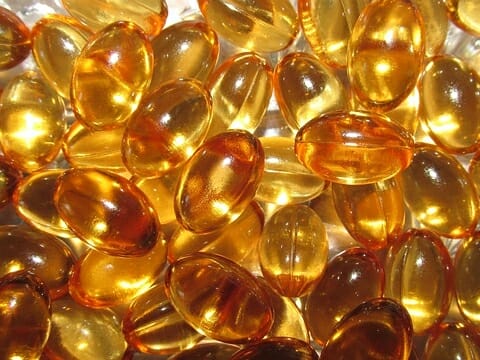Docosahexaenoic acid (DHA), a long-chain polyunsaturated fatty acid (LCPUFA), accumulates in the brain during the first two years of life and plays an important role in cognitive development. The cell membranes of the central nervous system contain high levels of DHA and other LCPUFAs. It is believed that a higher concentration of these fatty acids leads to better developmental outcomes.
Many studies of DHA have been conducted but with varied results. Some research shows that supplementation with DHA in lactating mothers has beneficial effects on the mental development of infants, while other research shows that supplementation with DHA has no additional benefits.
So, is DHA really that important?
A DHA Study
In 2005, researchers from Denmark, under the supervision of Lotte Lauritzen, conducted a study titled “Maternal Fish Oil Supplementation in Lactation: Effect on Developmental Outcome in Breast-fed Infants,” in which they investigated the effects of DHA supplementation in mothers on the developmental outcomes of breastfed infants. The objective of their study was to assess whether or not an increased level of DHA in breastmilk via supplementation with fish oil affects the mental development of infants.
Danish people consume more fish than those in many other European countries do. Since this study was conducted in Denmark, the mothers already had a high intake of fish in their daily diets.
The mothers participating in the study were divided into two groups: a study group and a comparison group. The study group consisted of mothers who consumed fish on a lower-than-average basis. The members of the study group were given supplements of either fish oil or olive oil. The comparison group consisted of mothers who consumed fish on a higher-than-average basis. The women in the comparison group were not given any supplements.
Supplementation began after delivery and continued throughout the first four months of lactation. The infants’ motor functions and problem-solving abilities were assessed at nine months of age and their linguistic development was assessed at one year and two years of age.
Results
There was a 2.5-fold increase in DHA in the infants of the mothers who received fish oil supplementation. DHA levels did not increase in the group that received olive oil supplementation. However, the increase in DHA levels in the fish oil group produced no significant improvement in the infants’ motor development when compared to the olive oil or comparison groups. All the infants learned to sit, crawl, and stand at approximately the same age. Neither were there any apparent differences in the infants’ problem-solving abilities among the three groups.
Fish oil supplementation did impact the language development of infants, but it was a negative effect. Specifically, maternal fish oil supplementation negatively affected the linguistic development of boys but not girls. Rather, girls had a significantly higher vocabulary than boys at one year of age as well as at two years of age. However, the difference was attributed to the fact that boys usually mature slower than girls and not to DHA levels.
Conclusion
The study showed no additional benefits of DHA supplementation, although some other studies have. These inconsistencies may be due to a dose-response relationship. Other studies also could have used different tools and methods to evaluate cognitive and language abilities.
Cross-cultural studies show that Danish children have slow early language development compared to American, Swedish, and Spanish children, but they appear to catch-up after two years of age. Some researchers think this is because Danish people consume a higher amount of fish.
Nevertheless, further investigation is required to fully understand the advantages and disadvantages of DHA supplementation.
Reference
Lauritzen, Lotte, Marianne H. Jorgensen, Sjúrdur F. Olsen, Ellen Marie Straarup, and Kim F. Michaelsen. “Maternal Fish Oil Supplementation in Lactation: Effect on Developmental Outcome in Breast-fed Infants.” Reproduction Nutrition Development 45, no. 5 (2005): 535–547. Retrieved from https://rnd.edpsciences.org













